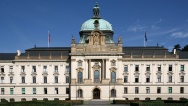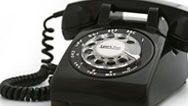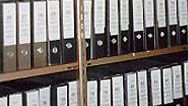Press Advisories
15. 4. 2010 12:51
Nuclear Security Summit
A summit on nuclear security took place in Washington on 12 and 13 April 2010. It was called by United States President Barack Obama with the goal of limiting the spread of nuclear material which could be misused for purposes of nuclear terrorism.
Leaders met at the summit from 47 countries which have active nuclear programmes or research, or are starting to plan for it. Numerous representatives from the UN, the European Union and the International Atomic Energy Agency (IAEA) also took part. The Czech Republic was represented by Prime Minister Jan Fischer. He went together with Czech Deputy Prime Minister and Defence Minister Martin Barták.
The goal of the summit was an agreement by which the heads of state commit to the continued nonproliferation of nuclear material. US President Obama is convinced that the threat of the misuse of nuclear material for the production of nuclear weapons, or the so-called "dirty bomb" by terrorists is real, not only hypothetical and that it is therefore necessary to prevent. Last Thursday's signing of an agreement with Russia in Prague is also part of the United States' lowering of the nuclear threat.
The summit began on Monday with its organiser, US President Barack Obama, welcoming all participants, and then a working dinner was held. The second day continued talks in a plenary meeting which was also presided over by the American president.
On Monday, Ukraine committed to getting rid of all of its supply of highly enriched uranium by 2012; the material could be used to build a nuclear bomb. On Tuesday 13 April the USA and Russia signed an agreement which commits both states to decreasing their supplies of plutonium necessary for nuclear weapons production. By doing so, the United States and Russia will get rid of 34 tonnes of highly radioactive material. Plutonium from weapons storage will be processed into fuel for nuclear power plants. The agreement was signed by both countries' heads of diplomacy, Hillary Clinton and Sergei Lavrov. According to the agreement, costs connected to the transformation of radioactive material into nuclear fuel will be paid by the United States. Experts from Harvard University estimate that the overall cost should reach a total of around USD 400 million. According to the agreement signed by the heads of both states in Prague last Thursday, Russia and the USA will get rid of around one-third of their strategic nuclear warheads. 1,550 will remain in each country. The agreement must still be ratified by both chambers of the Russian Parliament and by the United States Senate.
At the summit, Obama also met with Kazakhstan President Nursultan Nazarbayev, who the American president marked as an exemplary politician with regards to limiting nuclear armament. Nazarbayev served to liquidate nuclear weapons in Kazakhstan.
In addition to meeting with Nursultan Nazarbayev, Obama also met with Indian Prime Minister Manmohan Singh, Chinese President Hu Jintao and South African President Jacob Zuma.
Czech Prime Minister Jan Fischer used the summit for several meetings. For example, meetings were held in Washington with Spanish Prime Minister José Luis Zapatero; he met with Zapatero as the prime minister of the country holding the presidency of the European Union. The primary topic of the prime ministers' meeting was Galileo, the European navigation system, and the location of its headquarters in the Czech Republic.
Jan Fischer also met with Norwegian Prime Minister Jens Stoltenberg and Georgian President Mikheil Saakashvili.
Deputy Prime Minister and Defence Minister Martin Barták met at the summit with US Under Secretary of Defence Michele Flournoy. At a meeting with US Secretary of State Hillary Clinton, he discussed certification for the export of Czech L-159 aircraft granted by the US State Department as well as increasing the number of soldiers in Afghanistan.






